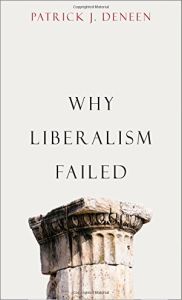Recommendation
Is the American sociopolitical system at endgame? Incisive and bleak, Patrick J. Deneen’s scholarly analysis provides an important look at liberalism’s evolution and contradictions. According to Deneen, though liberalism has spread throughout the globe, this political ideology’s success is also the cause of its demise. Though proponents tout liberalism as a means of enhancing equality, pluralism and liberty, in truth, Deneen argues, liberalism fosters inequality and uniformity, while undermining freedom. This book, which draws on centuries of philosophical and political thought, was completed in 2016, weeks before the United States elected President Trump – arguably, making its content all the more timely. Unfortunately, the book’s often unnecessarily complex language and structure may undermine its appeal for some readers. Those looking for clear explanations and definitions of concepts need to be patient; much is reserved for the final chapter and the conclusion. Moreover, as the book progresses, some of Deneen’s critiques of progressives make the book feel less measured. Still, Deneen’s thesis is thought-provoking and his practical examples of political theory in-action are illustrative.
Summary
About the Author
Patrick J. Deneen is the author of Democratic Faith and The Odyssey of Political Theory. He is an associate professor at the University of Notre Dame, where he teaches political science.








Comment on this summary